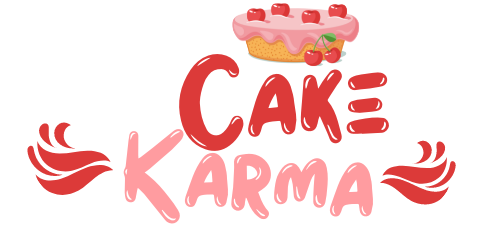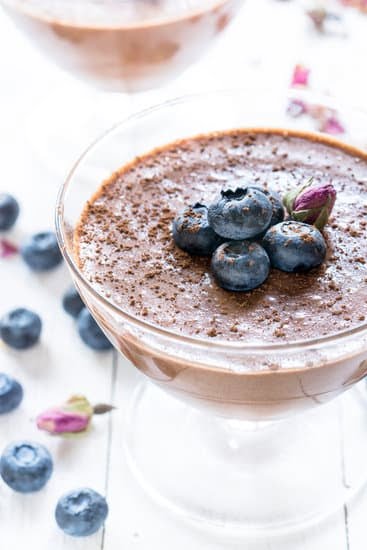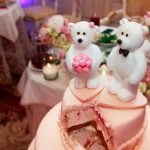A cake decorator job involves the creative and skilled art of decorating cakes for various events and occasions. Whether it’s a birthday, wedding, or special celebration, cake decorators use their expertise to turn simple cakes into works of art. From intricate designs to custom creations, a cake decorator brings joy and beauty to the dessert table.
To succeed in a cake decorator job, individuals must possess a unique blend of creativity, artistic talent, and attention to detail. A keen eye for design and color, along with steady hands for delicate work, are essential skills required in this profession.
Many aspiring cake decorators pursue formal training and education in baking and pastry arts to enhance their skills and knowledge. Through dedicated programs and courses, individuals can learn the techniques and principles necessary to become a certified cake decorator.
Skills and Qualifications
Becoming a successful cake decorator requires a unique set of skills and qualifications. Firstly, attention to detail is crucial in this role, as decorators must be able to meticulously craft intricate designs and patterns. Creativity is also essential, as cake decorators often need to come up with original designs that cater to their clients’ specific requests. Additionally, good hand-eye coordination and steady hands are necessary for precise decorating work.
A keen understanding of color theory and design principles is important for creating visually appealing cakes. Knowledge of different types of icing, frosting, and other edible materials used in cake decorating is also crucial. Lastly, excellent time management skills are essential, since cake decorators often work on multiple orders at once, all with different deadlines.
In terms of qualifications, some employers may require a high school diploma or equivalent, while others may prefer candidates with formal training in pastry arts or culinary arts. Many aspiring cake decorators choose to pursue certification from culinary schools or technical institutes to gain the necessary skills and knowledge required for the job.
It’s important for anyone interested in pursuing a career as a cake decorator to recognize that it is not solely about artistic talent; it also demands patience, precision, and the ability to work efficiently under pressure. By honing these skills and obtaining relevant qualifications, individuals can position themselves for success in the competitive world of professional cake decorating.
| Skill/Qualification | Description |
|---|---|
| Attention to Detail | Meticulously crafting intricate designs and patterns. |
| Creativity | Coming up with original designs that cater to clients’ specific requests. |
| Hand-eye Coordination | Necessary for precise decorating work. |
Training and Education
Formal Education
While it is not always necessary to have a formal education to become a cake decorator, many professionals in this field choose to pursue training in culinary arts or baking and pastry arts. These programs can typically be found at vocational schools, community colleges, or specialized culinary institutes. Coursework often includes hands-on training in cake decorating techniques, as well as instruction in food safety and sanitation.
Apprenticeship
Another common path to becoming a certified cake decorator is through an apprenticeship. This involves working under the guidance of an experienced professional for a certain period of time to learn the skills and techniques of the trade. Apprenticeships can provide valuable real-world experience and opportunities to build a portfolio of work, which can be beneficial when seeking employment.
Certification
While certification is not always required, some cake decorators choose to become certified through organizations such as the American Culinary Federation or the Retail Bakers of America. Certification programs typically involve passing an exam that assesses knowledge and skills related to cake decorating. Becoming certified can demonstrate a commitment to professionalism and may enhance job prospects for aspiring cake decorators.
By pursuing formal education, completing an apprenticeship, or obtaining certification, individuals interested in pursuing a cake decorator job can gain the knowledge and skills necessary to succeed in this creative and rewarding career.
Job Duties
As a cake decorator, your day-to-day tasks will involve a combination of artistic skill and attention to detail. Here are some common job duties that you can expect to perform:
- Designing and decorating cakes for various occasions such as weddings, birthdays, holidays, and other special events
- Working with fondant, gum paste, buttercream, and other edible materials to create decorative elements such as flowers, figurines, and intricate designs
- Using pastry bags, tips, and other tools to pipe frosting and create different textures and patterns on cakes
- Coloring icing and fondant to achieve the desired shades and hues for cake decorations
- Consulting with clients to understand their specific design requests and providing creative input based on their preferences
- Maintaining cleanliness and organization in the cake decorating area, including proper storage of supplies and equipment
In addition to the hands-on artistic work involved in cake decorating, you may also be responsible for administrative tasks such as inventory management, ordering supplies, and keeping track of customer orders. It’s important to be able to manage your time efficiently in order to meet deadlines while maintaining high quality standards in your work.
Whether you work in a bakery or a specialty cake shop, your job duties may also include assisting with customer inquiries, providing pricing information for custom orders, and promoting additional products or services offered by the business. Overall, being a cake decorator requires not only creative talent but also strong communication skills and the ability to work well under pressure during busy periods.
Work Environment
Cake decorators can work in a variety of settings, depending on their specific niche within the industry. Here are some common work environments for cake decorators:
- Bakeries: Many cake decorators are employed by bakeries, where they create custom cakes for special occasions such as weddings, birthdays, and anniversaries. They may also be responsible for decorating pre-made cakes for display in the bakery’s case.
- Specialty Cake Shops: Some cake decorators work in specialty cake shops that focus solely on custom-designed cakes. These establishments often cater to a high-end clientele and may have more demanding design requirements.
- Catering Companies: Catering companies often employ cake decorators to create visually stunning and delicious desserts for events such as weddings, corporate gatherings, and fundraising galas.
- Freelance: Many skilled cake decorators choose to work as freelancers, taking on custom orders from individual clients. This allows them the flexibility to work from home or a rented commercial kitchen space.
In each of these environments, cake decorators may be required to work under tight deadlines and manage multiple projects simultaneously. Additionally, they must maintain a clean and organized workspace to ensure food safety and quality standards are met.
Some cake decorators also find employment in non-traditional settings such as cruise ships, resorts, or even theme parks where elaborate dessert displays are required for large-scale events. Regardless of the setting, creativity and attention to detail are essential skills for success in this role.
Salary and Job Outlook
Salary Expectations
As a cake decorator, the salary can vary depending on several factors such as experience, location, and the type of establishment you work for. According to the Bureau of Labor Statistics, the median annual wage for bakers, including cake decorators, was $28,360 in May 2020. However, those with more experience and specialized skills may earn significantly more. Additionally, freelance cake decorators have the potential to earn higher rates per project.
Job Outlook
The job outlook for cake decorators is projected to remain stable in the coming years. As long as people continue to celebrate special occasions with custom cakes, there will be a demand for skilled cake decorators. However, competition for jobs at higher-end bakeries or in metropolitan areas may be strong. Developing a varied skillset and staying up-to-date with current trends in cake decorating can help individuals stand out in this competitive field.
Income Potential
In addition to traditional employment opportunities at bakeries or pastry shops, experienced cake decorators may also have the opportunity to teach classes or workshops, write books or blogs on the subject of baking and cake decorating, or even participate in televised baking competitions. These alternative income streams offer the possibility of increasing earnings beyond what might be possible through traditional means alone.
Career Path
Cake decorating is not just a job, it can also be a fulfilling career for those who are passionate about creating edible works of art. As a cake decorator gains experience and hones their skills, opportunities for advancement in the field begin to open up.
One potential career path for an experienced cake decorator is to become a head cake decorator or bakery manager. These roles often involve overseeing a team of decorators, managing inventory and supplies, and collaborating with clients to design custom cakes.
Another avenue for advancement in the field of cake decorating is to start your own business. Many talented decorators eventually choose to branch out on their own, opening their own cake decorating business or bakery.
This allows them to have full creative control over their projects and build a loyal customer base over time. Additionally, some may choose to specialize in certain types of cakes such as wedding cakes or specialty event cakes, which can lead to increased demand and higher earnings.
Finally, some experienced cake decorators may also transition into teaching or training roles. This can include working as an instructor at a culinary school, offering workshops and classes, or even writing instructional books or creating online tutorials. Sharing knowledge and expertise with the next generation of cake decorators can be a rewarding career choice for those who are passionate about passing on their skills.
| Advancement Opportunities | Description |
|---|---|
| Head Cake Decorator/Bakery Manager | Oversee teams of decorators, manage inventory and collaborate with clients |
| Start Own Business | Open a cake decorating business or bakery for full creative control |
| Teaching/Training Roles | Become an instructor at a culinary school, offer workshops/classes or write instructional materials |
Tips for Landing a Cake Decorator Job
In conclusion, a cake decorator job is a rewarding and creative career path for those with a passion for baking and design. With the right skills, qualifications, and training, individuals can excel in this field and create beautiful, delicious works of art for all types of occasions. From weddings to birthdays to holidays, cake decorators play an essential role in making celebrations memorable with their intricate designs and attention to detail.
To succeed as a cake decorator, it is crucial to possess strong artistic abilities, attention to detail, creativity, and patience. Additionally, completing a certification program or apprenticeship can provide the necessary education and experience to stand out in the job market. With the demand for custom cakes on the rise, there are plentiful opportunities for skilled cake decorators to find work in various settings such as bakeries, restaurants, catering companies, or even start their own business.
Furthermore, when applying for a cake decorator job, candidates should emphasize their portfolio of work showcasing their talents and expertise. Highlighting any additional skills such as customer service experience or knowledge of pastry techniques can also be advantageous in securing a position. By following these tips and demonstrating your passion for the craft of cake decorating, you can set yourself apart from other applicants and pursue a successful career in this dynamic industry.
Frequently Asked Questions
What Do You Do as a Cake Decorator?
As a cake decorator, my main task is to decorate cakes using various techniques like piping, fondant sculpting, and airbrushing. I also work with different icing types and colors to create visually appealing designs for special occasions.
What Qualifications Do You Need to Become a Cake Decorator?
To become a cake decorator, formal education in culinary arts or baking is beneficial but not always required. Many cake decorators gain skills through on-the-job training or by attending specialized cake decorating classes. Creativity, attention to detail, and good hand-eye coordination are key qualifications for this role.
What Is a Cake Decorator Called?
A cake decorator can be called by different names depending on the setting. In a bakery or pastry shop, they may simply be referred to as a “cake decorator” or “pastry chef.” In larger commercial settings or hotels, they could be part of the culinary team under the title of “pastry artist” or “cake artist.”

Welcome to our cake decorating blog! My name is Destiny Flores, and I am the proud owner of a cake decorating business named Cake Karma. Our mission is to provide delicious, beautiful cakes for all occasions. We specialize in creating custom cakes that are tailored specifically to each customer’s individual needs and tastes.





